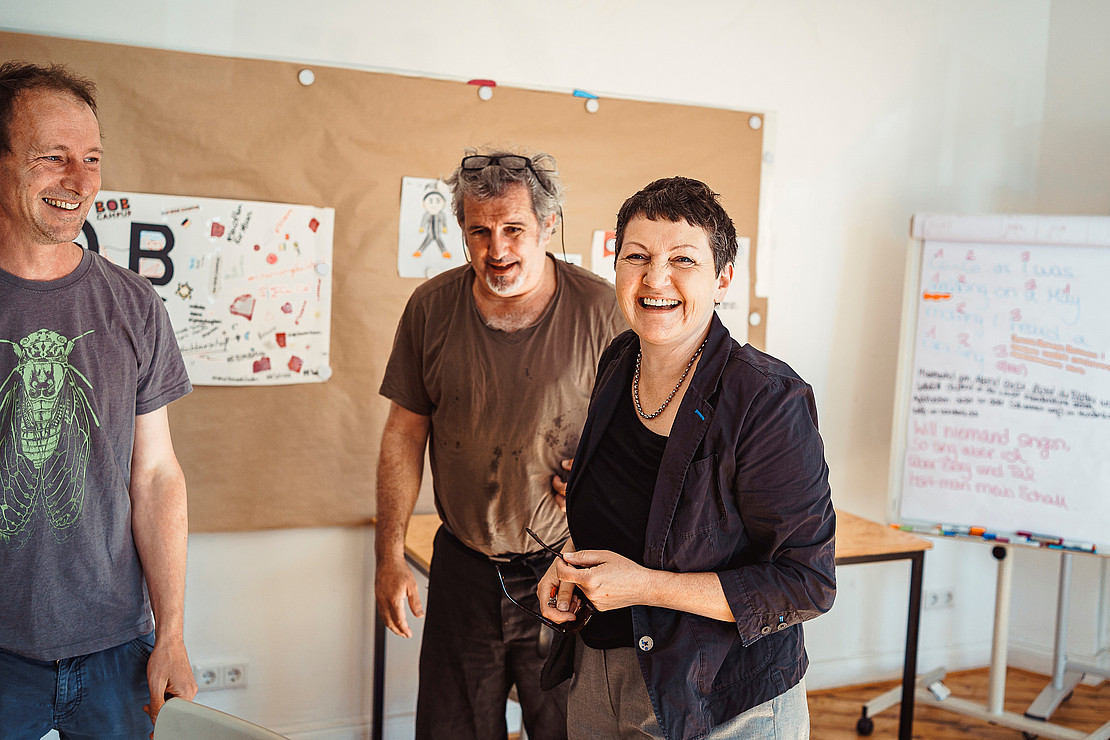Johanna Martina Debik

It's not just specialist knowledge, it's a way of thinking that Johanna Martina Debik took with her from her studies. Some 20 years later, her work is still shaped by it. She studied urban and regional planning and architecture in Kassel and is now a board member of the Montag Stiftung Urbane Räume, which uses a new method to revitalize urban districts.
"I experienced my studies as a very free, self-determined time. I had the opportunity to set priorities in my studies, was able to set my own goals and test my limits," says the 59-year-old. "The creative studio atmosphere in our project rooms really inspired me and was good preparation for my later work in architecture offices."
Debik began studying urban and regional planning at the former Gesamthochschule Kassel in 1989. She later switched to architecture, mainly inspired by Prof. Inken Baller. On joint excursions to France, the Ruhr region and East Berlin, she gained a new perception of space and also became aware of the importance of building in existing structures. "Above all, I took interdisciplinary and holistic thinking with me from my studies," she says. To this day, interdisciplinary research and teaching as well as project work are part of the profile of the Faculty of Architecture - Urban Planning - Landscape Planning.
After completing her Diploma I, Debik initially worked in architecture offices for a few years and then resumed her studies in 2000 to complete her Diploma II. As a research assistant to Prof. Detlev Ipsen, Debik researched migration as an opportunity for urban development and published a book on the subject with Ipsen. His then innovative approach of considering sociological aspects in urban and regional planning still influences her today.
In 2006, she turned her back on her home town and began working as a project developer in the real estate industry in Hamburg. Here she became familiar with the conditions on the investor side - experience from which she benefits today in her work at the Montag Stiftung Urbane Räume.
Although the foundation performs a similar function to a project sponsor, its approach is completely different. The idea: the foundation's capital is used to finance central projects that bring vacant buildings or derelict sites back to life. Citizens of the neighborhood get involved at an early stage and work together to develop new usage concepts that meet their needs.
"After a project company has implemented the project, residents, commercial tenants and committed people from the district gradually take on responsibility. They continue the work in the district and are supported by the income from the property management. Surpluses flow back into the district and support the common good," explains Debik. The concept is called the "initial capital principle".
One example - the BOB Campus in Wuppertal: Johanna Debik and the foundation's team got the conversion of a former textile factory in Wuppertal into a campus with a daycare center, classrooms, commercial space, apartments and a neighborhood park off the ground. "We not only use the gray energy of a location, i.e. the existing building fabric, but also the golden energy, i.e. the history and identity of the location."
Debik has been working for the foundation since 2017 and has been a board member since April 2020, working in a team of two with Stefan Anspach. She is the editor of the book series "Building for the Common Good", with which she wants to encourage city makers to initiate their own projects based on the initial capital principle. Further knowledge formats and platforms for exchange are planned. Debik believes that the fact that participation and a focus on the common good are increasingly being taken into account in real estate development today is partly thanks to Kassel University: "In the last five to ten years, there has been a turnaround, driven by a social movement. Municipalities, civil society and the real estate industry can work together to make a difference. I see a lot of potential here."